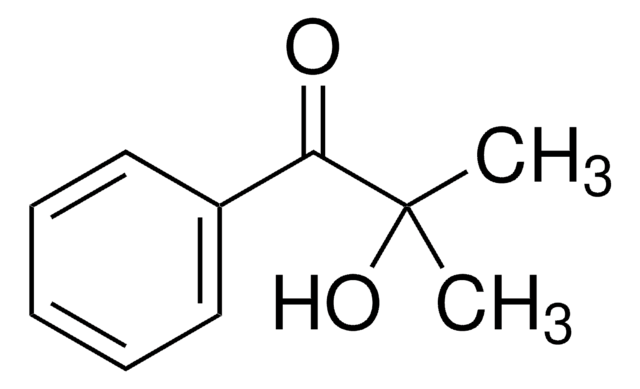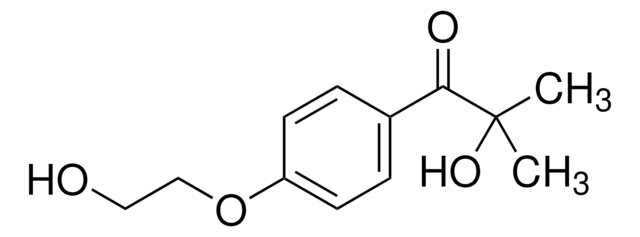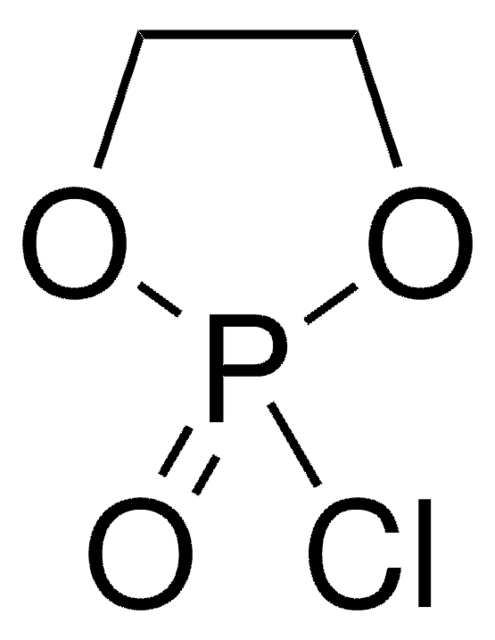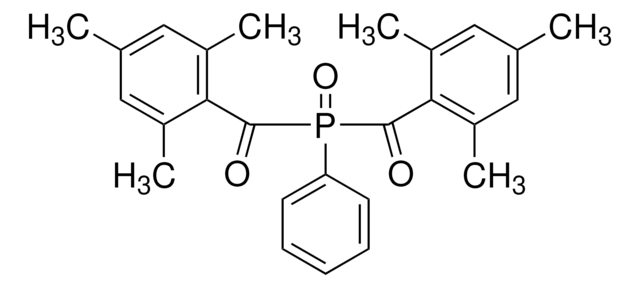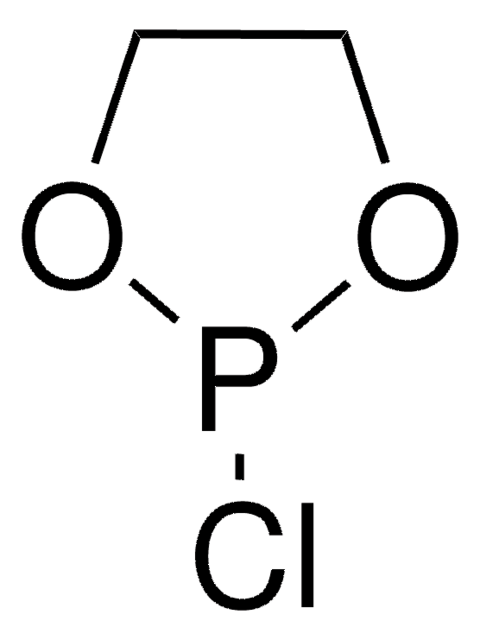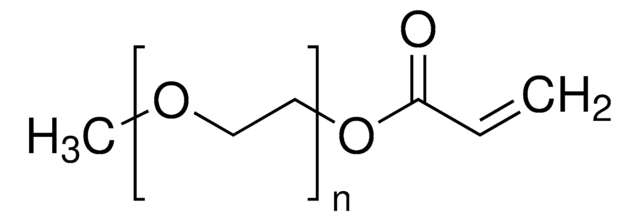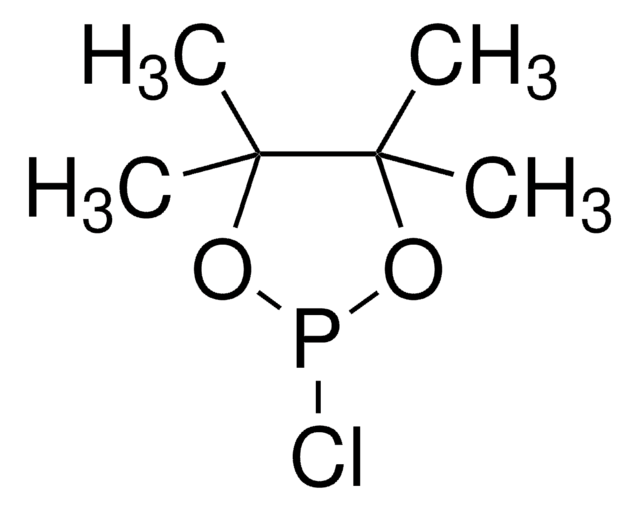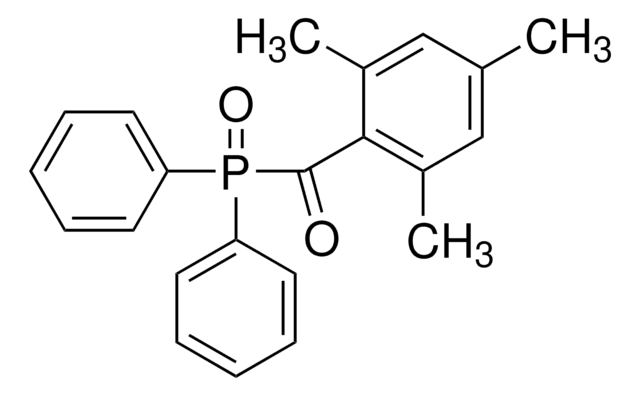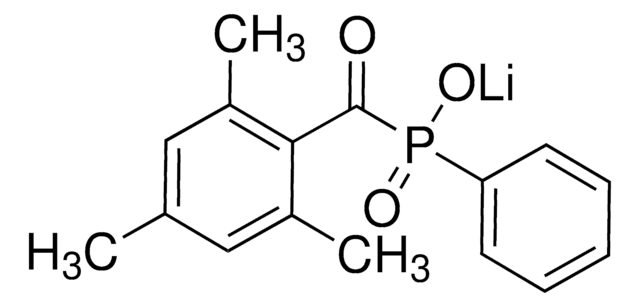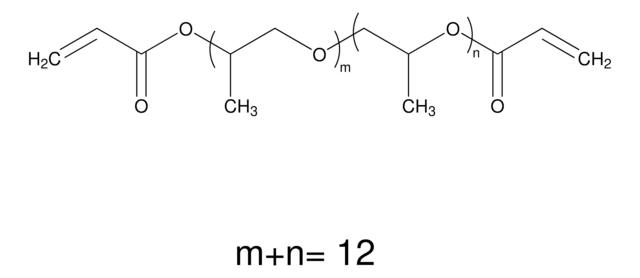455008
Poly(ethylene glycol) diacrylate
average Mn 700, acrylate, 100 ppm MEHQ as inhibitor, 300 ppm BHT as inhibitor
Sinónimos:
Polyethylene glycol, PEG diacrylate
About This Item
Productos recomendados
Nombre del producto
Poly(ethylene glycol) diacrylate, average Mn 700
mol wt
average Mn 700
Quality Level
contains
100 ppm MEHQ as inhibitor (typically)
300 ppm BHT as inhibitor (typically)
reaction suitability
reagent type: cross-linking reagent
reaction type: Polymerization Reactions
refractive index
n20/D 1.47
mp
12-17 °C
density
1.12 g/mL at 25 °C
Ω-end
acrylate
α-end
acrylate
polymer architecture
shape: linear
functionality: homobifunctional
storage temp.
2-8°C
SMILES string
OCCO.OC(=O)C=C
InChI
1S/C8H10O4/c1-3-7(9)11-5-6-12-8(10)4-2/h3-4H,1-2,5-6H2
InChI key
KUDUQBURMYMBIJ-UHFFFAOYSA-N
¿Está buscando productos similares? Visita Guía de comparación de productos
Categorías relacionadas
General description
Application
signalword
Danger
hcodes
Hazard Classifications
Eye Dam. 1 - Skin Irrit. 2 - Skin Sens. 1
Storage Class
10 - Combustible liquids
wgk_germany
WGK 1
flash_point_f
446.0 °F - closed cup
flash_point_c
230 °C - closed cup
ppe
Eyeshields, Faceshields, Gloves, type ABEK (EN14387) respirator filter
Elija entre una de las versiones más recientes:
¿Ya tiene este producto?
Encuentre la documentación para los productos que ha comprado recientemente en la Biblioteca de documentos.
Los clientes también vieron
Artículos
In this article, we will discuss the benefits and limitations of several 2D and 3D scaffold patterning techniques that can be applied in the presence of cells. Although these methods will be discussed in the context of poly(ethylene glycol) (PEG)-based hydrogels, they can technically be applied to any optically transparent, photoactive substrate.
Global Trade Item Number
| Número de referencia del producto (SKU) | GTIN |
|---|---|
| 455008-100ML | 4061832340838 |
| 455008-500ML | 4061832340845 |
Nuestro equipo de científicos tiene experiencia en todas las áreas de investigación: Ciencias de la vida, Ciencia de los materiales, Síntesis química, Cromatografía, Analítica y muchas otras.
Póngase en contacto con el Servicio técnico
